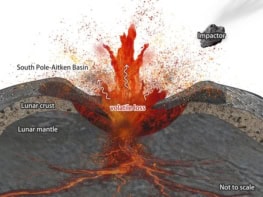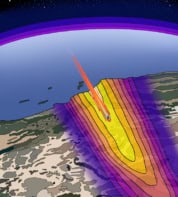
1911–2008
John Wheeler, the legendary physicist who helped to develop the theory of nuclear fission and coined the term “black hole”, died yesterday at the age of 96. Wheeler, who spent most of his academic career at Princeton University, was supervisor to a roll call of great names in physics, including Richard Feynman, cosmologist Kip Thorne and “many-worlds” theorist Hugh Everett.
Born on 9 July 1911 in Jacksonville, Florida, Wheeler went to Johns Hopkins University in Baltimore, Maryland, in 1927, aged just 16. He originally enrolled to study engineering but switched to physics after a being inspired by his physics lecturer John C Hubbard. Wheeler eventually combined his undergraduate and doctoral studies, graduating with a PhD in 1933 on the properties of the helium atom.
The following year saw Wheeler travel to Copenhagen, where he did a post-doc with Niels Bohr, with whom he was to have many discussions concerning the foundations of quantum mechanics. In his application to the US National Research Council for a fellowship to go to Denmark, Wheeler said Bohr was “the best man under whom to investigate the nucleus”. The pair later collaborated on the theory of nuclear fission when Bohr arrived in the US in 1941 as a refugee from Denmark, including the “liquid-drop” model.
In 1943 Wheeler joined the Manhattan atomic-bomb project at Los Alamos in New Mexico, taking a break from his academic career at Princeton University, which had given him a professorship in 1938. Wheeler returned to Princeton after the Second World War, remaining there until his retirement in 1976.
Wheeler coined the name “black hole” in 1967 to describe what is created when a star of sufficient mass collapses under its own weight. The gravitational pull of the object then becomes so strong that no light can escape. Wheeler originally did not like the idea because it would lead to a singularity, where space is infinitely curved and matter is infinitely dense. He also was a pioneer of quantum gravity, developing the “Wheeler-deWitt” equation with Bryce deWitt.
After retiring from Princeton in 1976, which he established as one of the top centres for the study of general relativity, Wheeler moved to the University of Texas. In 1998 he published an autobiography “Geons, Black Holes and Quantum Foam: A Life in Physics”, which he co-authored with Kenneth Ford. Wheeler died at home in Hightstown, New Jersey, on Sunday 13 April.



